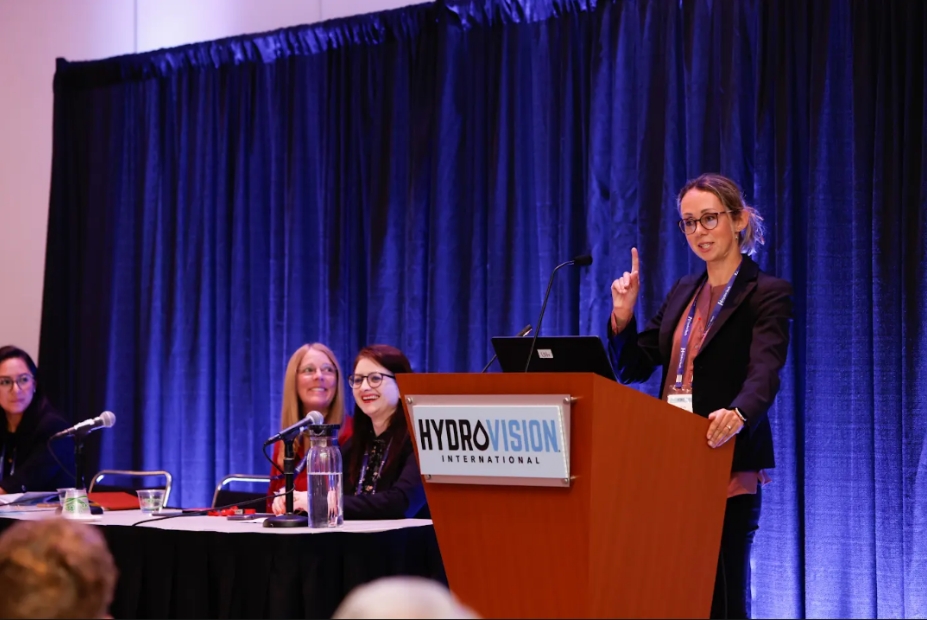
At HYDROVISION International this week, there was the acute awareness that hydroelectric power globally is facing climate change-induced challenges. California is a prime example, said Lindsay Aramayo, who is an economist with the U.S. Energy Information Administration (EIA).
The Golden State was facing its third straight drought year in 2022, and less water was flowing. That year, she said hydropower represented 8% of California’s generating mix, where it normally makes up 15% during a good year.
“There are bad years, there are also good ones and they seem to fluctuate a lot,” said Aramayo.
Aramayo joined other panelists at a HYDROVISION mega session to discuss the impacts of climate change on hydro infrastructure and the tools available for operators to adapt.
Debbie Gray, who is a Senior Energy Policy Manager at the International Hydropower Association (IHA), told attendees about IHA’s Climate Resiliency Guide, which aims to provide operators a practical approach to enhancing climate resilience.
The guide lays out a multi-phase process which includes climate risk screening, data analysis, stress tests (essentially a bunch of ‘what-if’ scenarios) and identifying solutions to mitigate risks. Gray said an operator can then implement functional and structural adaption measures – from planning and hydrological forecasting to onsite field upgrades like changing spill gate design parameters.
She used the example of the Cabra Bassa hydro plant in Mozambique, which followed the guide and implemented about 13 structural and non-structural changes. This included adding about 400 MW of capacity.
“[The guide] is flexible enough you can adapt it to your needs into your project,” said Gray. “It’s also used often in conjunction with other assessment tools like hydrological and sedimentation modeling software.”
Eva Kremere, a technical expert at the United Nations Industrial Development Organization, or UNIDO, talked about efforts to help developing countries with small hydropower development.
UN member states come to UNIDO, who provides comprehensive solutions. This includes helping countries prepare small hydro project proposals and applying for grant funding. UNIDO also offers technical guidelines, sharing best practices and technical knowledge or training.
Kremere said UNIDO helped initiate the development of small hydro a project in Nigeria, procuring $9 million in funding from the EU. The resulting 2 MW plant would help local farmers with irrigation.
She said the challenges she’s observing worldwide include drought and reduced streamflow, along with operational challenges in maintaining consistent output due to lower water levels
Kremere did say some energy hungry regions like Middle Africa and India have seen increased precipitation and water flow, presenting opportunities for small hydro.
“Small hydropower can help communities withstand climate change effects, and as my organization is helping the poorer regions who are more vulnerable to climate change, this is particularly important,” she said.